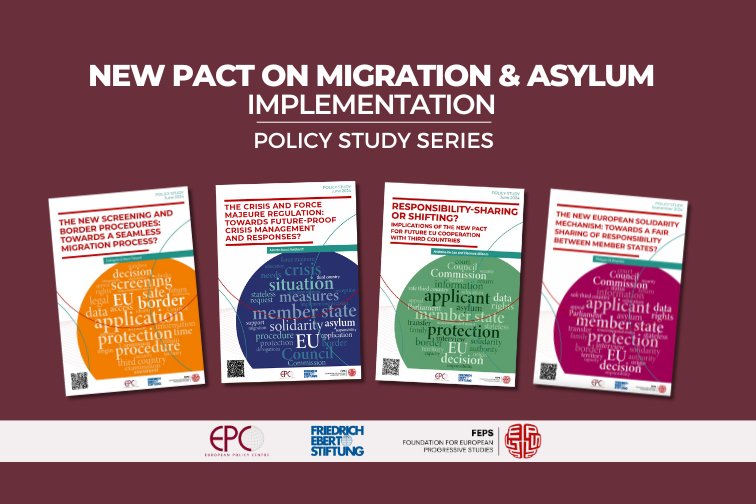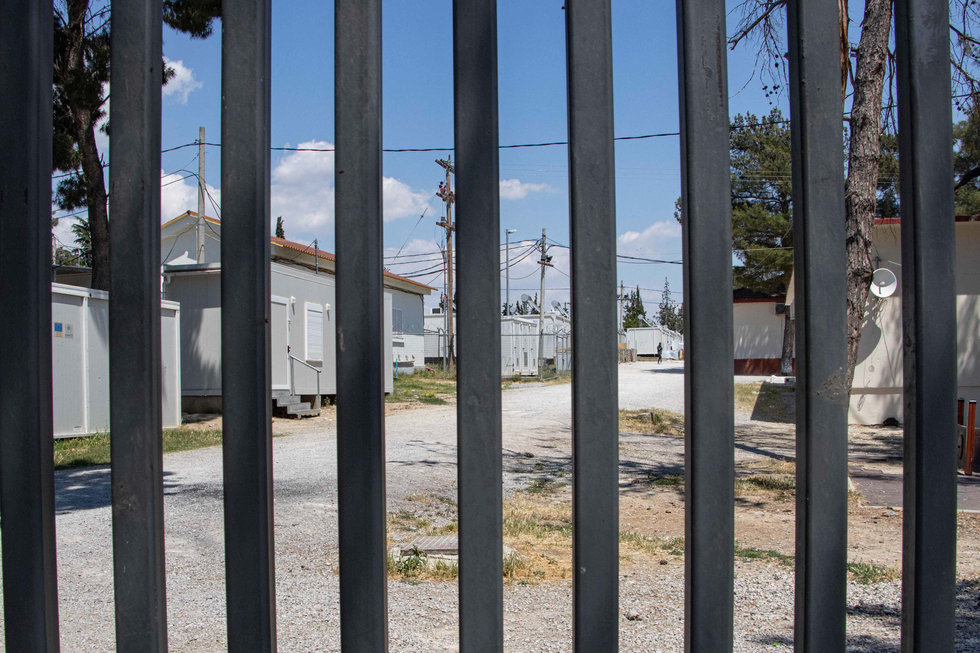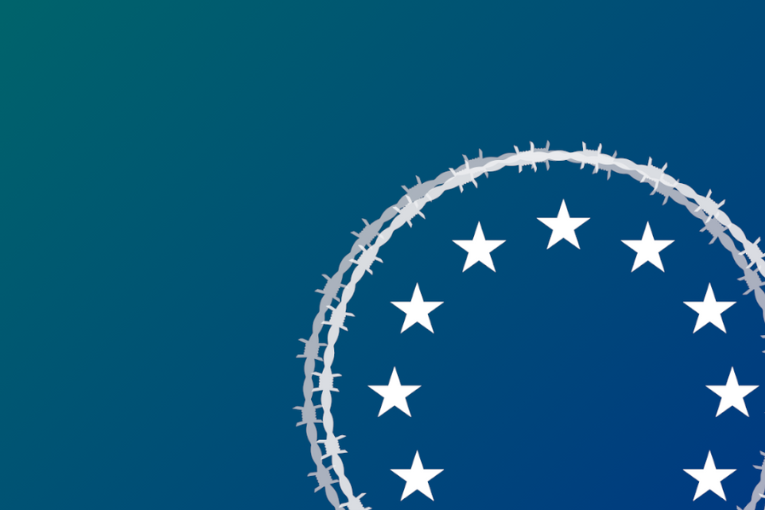Libya’s Coast Guard: Europe’s Deadly Gatekeepers in the Mediterranean

This article by Linn Jansen was written for the International Conference 'Migration - a progressive formula' organised by the Friedrich-Ebert-Stiftung. Together with international representatives from politics, civil society, the media and academia, we discussed the poignant issues and challenges of Human Mobility and formulated progressive responses. Read all articles here!
As one of the EU’s partners in the “fight against migration”, Libya was the subject of a Spiegel article published at the beginning of this year. Internal documents had revealed that coast guards working for the EU Border and Coast Guard Agency (Frontex) had regularly shared the coordinates of the smugglers’ boats attempting to cross the Mediterranean, resulting in the “rescue” of countless refugees. What, one might ask, is so controversial about that? As the quotation marks imply, what awaits refugees when they are picked up by the Libyan Coast Guard is anything but the better life they had been hoping for.
Libya is home to several UNESCO World Heritage sites. The dunes of the Sahara Desert. The majestic pillars of the unusually well-preserved ruins of Leptis Magna. It is a land of treasures. And a land of political unrest. It is a land in which, according to recent UN reports, an estimated 823,000 people required humanitarian assistance in 2024. A land that is home to 125,000 internally displaced people. This is a country in which, for so many, “Europe” is and will remain an unattainable goal. And the Libyan Coast Guard plays a large part in this. Since 2017 and the adoption of the Malta Declaration, Libya has been Europe’s deadly gatekeeper – and this very issue was one of the themes of the Friedrich-Ebert-Stiftung’s international conference “Migration: A Progressive Formula” in September 2024.
EU Migration Policy: Closed Borders and Repatriation
The European Union’s migration policy is based on closed borders and repatriation – an approach that was in place even before the Pact on Migration and Asylum was adopted in 2024. To slow the tide of refugees, deals are being concluded with third countries who are to ensure that migrants do not reach the European mainland. In return, they receive funding from the EU. For EU member states, this often seems like a sensible way of doing things. But for the hundreds of thousands of people forced to flee their homes – it is the end of their dream of a better life. After all, this money does not always end up improving people’s living conditions, nor does it lead fewer people to want or in fact have to flee their home countries. Instead, it supports systematic violence and abuse, legitimising practices that violate human rights and prevent people from fleeing. And nowhere is this more the case than Libya.
Human rescuers or human catchers
Libya plays a key role in the European Union’s migration policy. Between 2015 and 2022, the EU provided Libya with over 700 million euros in funding from various different sources. A not insignificant share of this money goes to the Libyan Coast Guard – a player in EU migration policy that could scarcely be more controversial. They are both sea rescuers and “people catchers”. Those they fish out of the Mediterranean have not managed to escape the food shortages and unemployment they were fleeing and instead have become victims of illegal repatriation, landing in what have been dubbed “reception camps”.
The inhumane conditions both within and en route to these camps are no secret. In a 2022 broadcast, the Tagesschau even referred to them as “torture camps”. For years now, the UN has been reporting on the countless human rights violations, human trafficking, forced labour and hunger – all carried out with impunity from government authorities, who like non-state actors, come and go in a continuous stream. And, all this is being funded, first and foremost, by the EU.
Border Protection over Human Rights: A Moral Dilemma
Instead of protecting migrants or coming up with genuinely sustainable solutions, the EU channels billions into border protection and security measures. Outsourcing responsibility in this way lends third countries legitimacy as political partners without addressing the massive human rights violations being committed – some of which are even a direct result of these EU deals. Indeed, these types of agreements are not an effective way to curb migration over the long term. Refugees are forced to take ever more dangerous routes, endure inhumane treatment – something many of them pay for with their lives. But as the numbers show – one thing they never do is give up. Libya is and will remain and attractive country for refugees. Mass graves, torture and famine will not deter them because fleeing is their only option. Instead of effectively fighting poverty, war and persecution, the EU has chosen to close comparatively safe migration routes. In so doing, it is actively complicit in the human rights violations committed by authoritarian regimes – using EU (in other words, our) money. And whichever way you look at it, as a Nobel Peace Prize winner, the EU should always know that protection of human rights can never take a back seat to the protection of borders.
Towards Better Protection of Human Rights
So, what should be done instead? The EU has to start using its financial resources to promote integration and legal migration routes. On the one hand, this would help ensure better living and migration conditions for refugees; on the other hand, it would alleviate the challenges faced by the first country of asylum. Funding for third countries must be tied to conditions that prioritise respect for human rights. Short-term security policy transactions or symbolic policies must give way to long-term, equal partnerships. The root causes of migration must continue to be actively and transparently addressed by investing in education, peace and economic development in the countries of origin. No other approach will be sustainable in the long term.
The EU faces a fundamental decision. Should we continue to work with authoritarian regimes as political partners, thus legitimising and supporting them – and the human rights violations they perpetrate; or should we finally embark on the path for which the EU won the 2012 Nobel Peace Prize? A path shaped by human rights-based policies, humanitarian solutions and a change in direction that banishes the “human catchers” in the Mediterranean to the past once and for all.
Linn Jansen studied International Relations and Social Sciences in Erfurt and now works in the Infrastructure, Digitalisation and Security team for the German Institute of Urban Affairs (Difu).
The opinions and statements of the guest author expressed in the article do not necessarily reflect the position of the Friedrich-Ebert-Stiftung.


